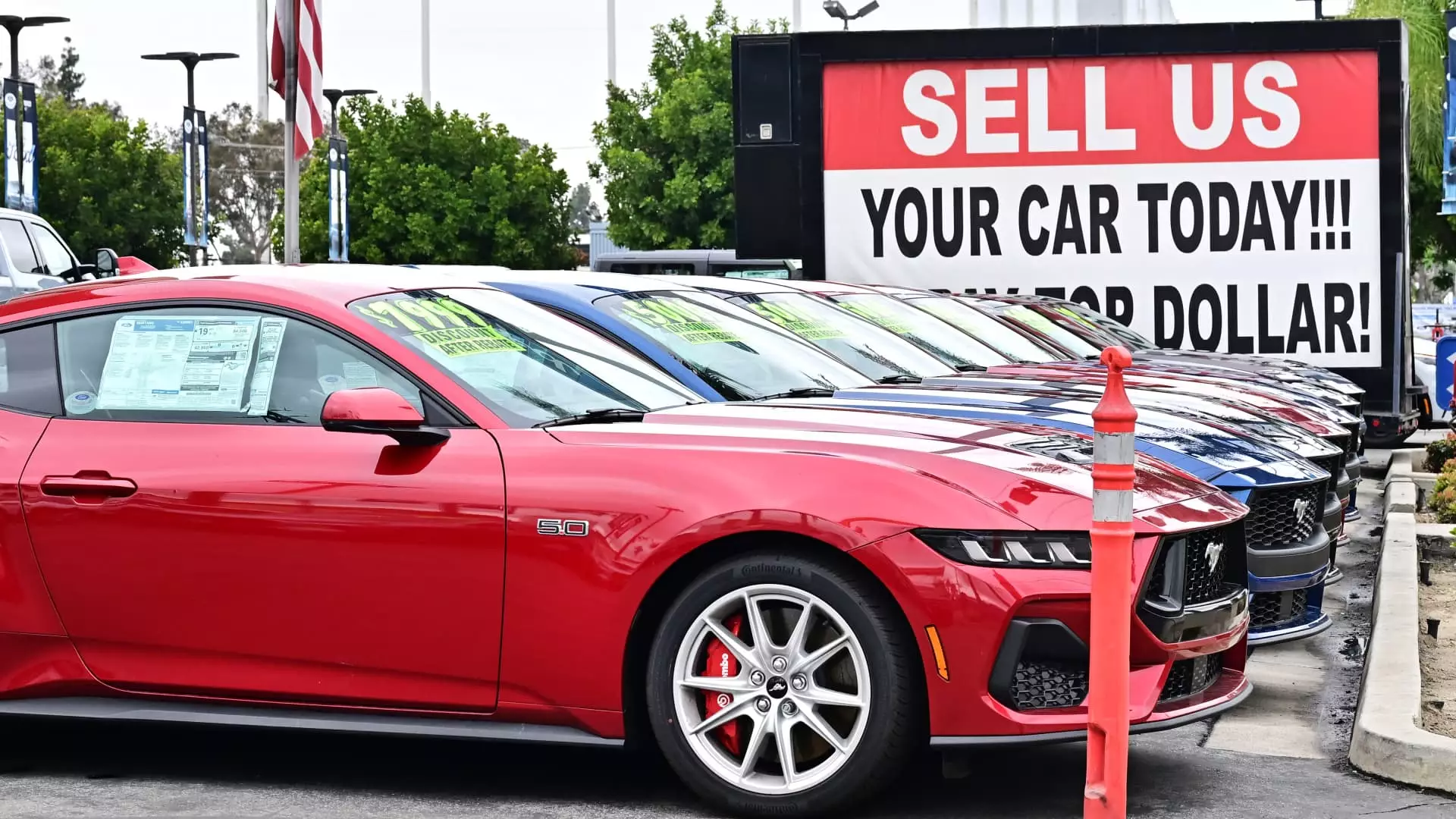The landscape of used vehicle pricing has recently experienced an intriguing yet unsettling fluctuation. While prices eased in May following a steep climb in April, it reveals much more than just a statistical anomaly. The Cox Automotive’s Manheim Used Vehicle Value Index—a critical metric that gauges used car prices through U.S. wholesale auctions—demonstrated a 1.5% decline from April to May, although it showed a significant 4% increase from a year prior. This duality breeds both optimism and concern, underscoring a market that may be more volatile and unpredictable than we prefer to admit.
The drop in prices signals a defensive maneuver by consumers. Many rushed to purchase vehicles during the peak months when they feared further price hikes due to tariffs. Here’s where a significant disconnect arises: while there has been a pronounced appreciation in wholesale values, this has not translated smoothly into retail prices for consumers. This disjointed pricing mechanism flags not just economic factors but also the psychosocial dimensions shaping consumer behavior. With the complexities of inflation, tariff implications, and a lingering pandemic, consumers seem to function increasingly on the territory of uncertainty.
The Tariff Trap
The imposition of a 25% tariff on imported vehicles and numerous parts serves as an economic touchstone that ripples through the used vehicle landscape. While these tariffs don’t directly impact the used car market, they substantially influence the new vehicle market, which is crucial because it sets the table for used vehicle sales. With new car prices escalating, consumers are driven toward the used market, which paradoxically can inflate used car prices despite them being indirectly influenced.
Adding to this convoluted narrative is the increasingly limited inventory of used vehicles, which has plummeted to a mere 2.2 million—low by historical standards. The pandemic-induced production cuts have compounded this issues, as consumers hang onto their vehicles longer than before, thereby tightening the market. In a way, this phenomenon begs the question: how long can this artificially sustained demand last before it too collapses under the weight of economic realities?
Consumer Behavior Amidst Chaos
What’s particularly striking about these recent trends is the incongruity between supply and demand. Retail used vehicle sales have dipped by 3% from April to May but interestingly rose by 4% compared to the previous year, showing an ongoing attraction to used vehicles. However, the shrinking inventory, coupled with growing consumer apprehension about future prices, paints a troubling picture. Are consumers poised on a brink of panic buying as they try to secure the last remnants of affordable vehicles before prices swing upward once more?
This sense of urgency also reflects broader societal anxieties, particularly around economic stability and the ability to make long-term financial commitments. A growing reluctance to invest in new vehicles likely stems from a larger drought in consumer confidence. The actions of President Trump, coupled with unpredictable tariffs, exacerbate this situation. Increasingly, we see consumers trying to outsmart a market that is continuously shifting beneath them—a formative challenge that may further jeopardize their purchasing power.
By digging deeper into these trends, we begin to unearth systemic issues plaguing not just the automotive sector but also the consumer psyche. A fragile used car market and consumer decisions rooted in trepidation signal an economy that is faltering, where stability seems as elusive as the next gas price hike.

Leave a Reply